CONTINUATION
—————-
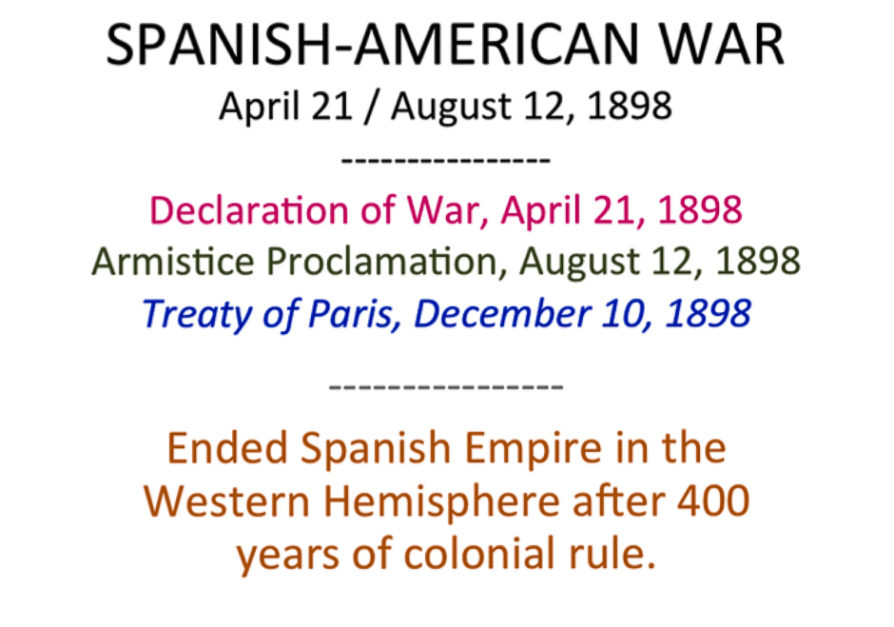
_______________________________________
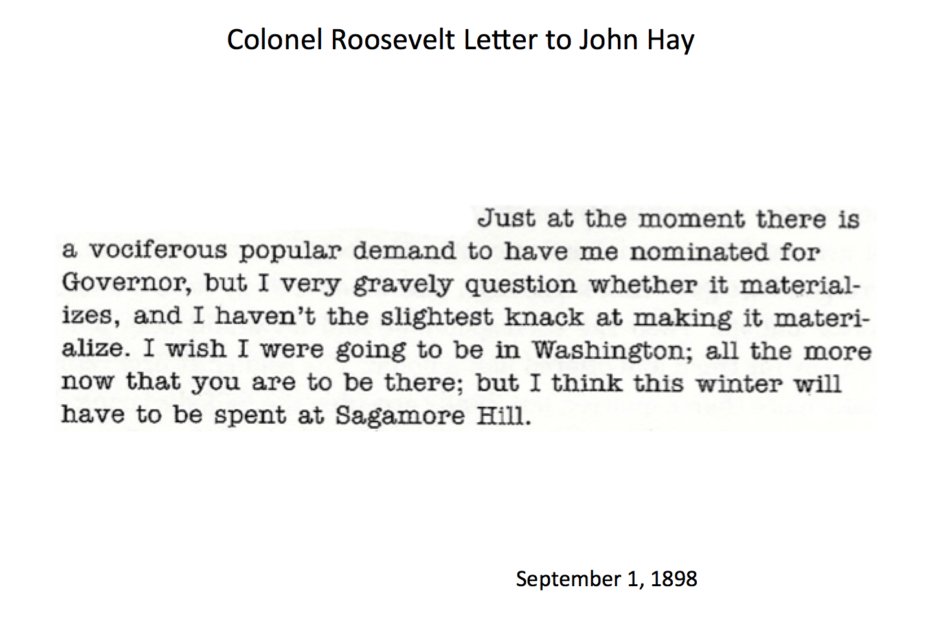 ———————————–
———————————–
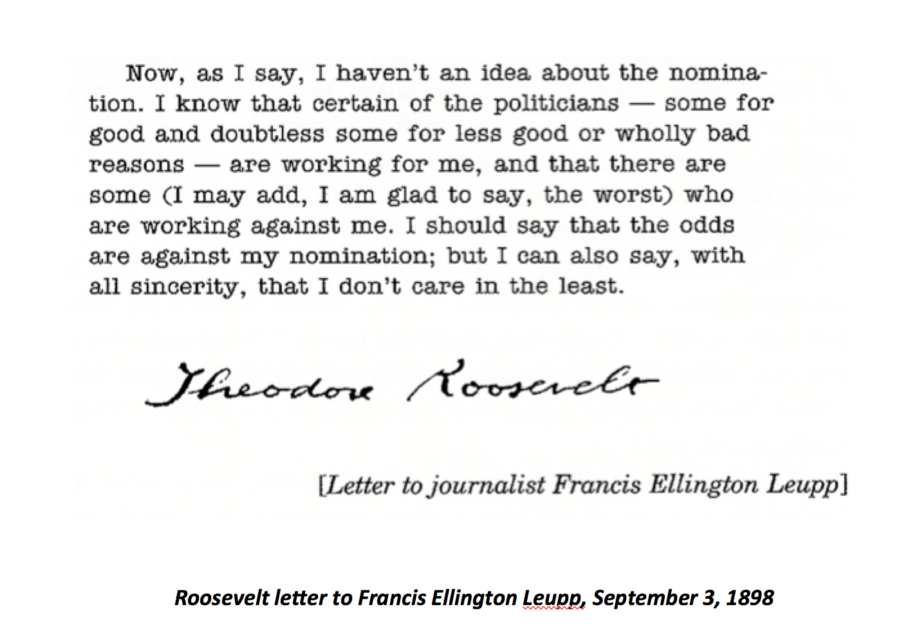
———————————–
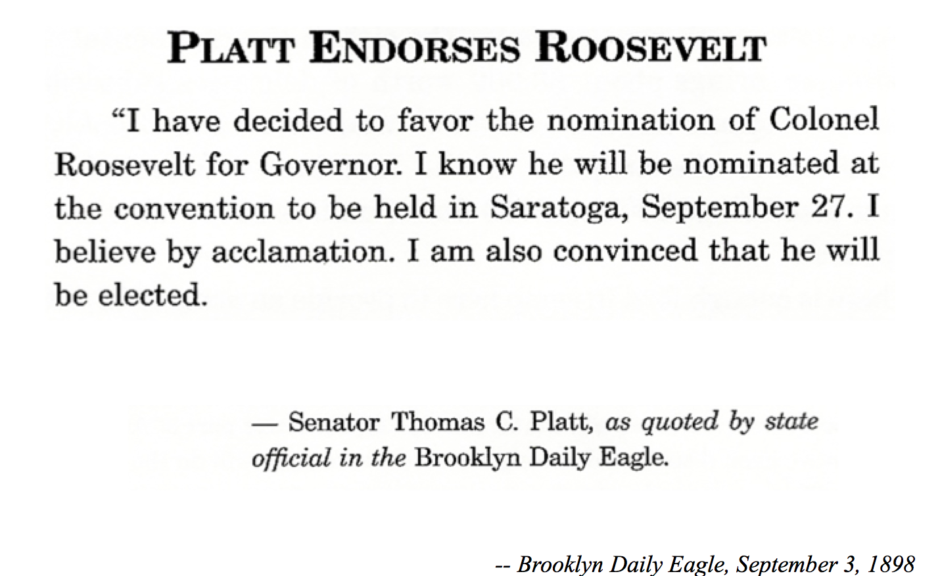
———————————–
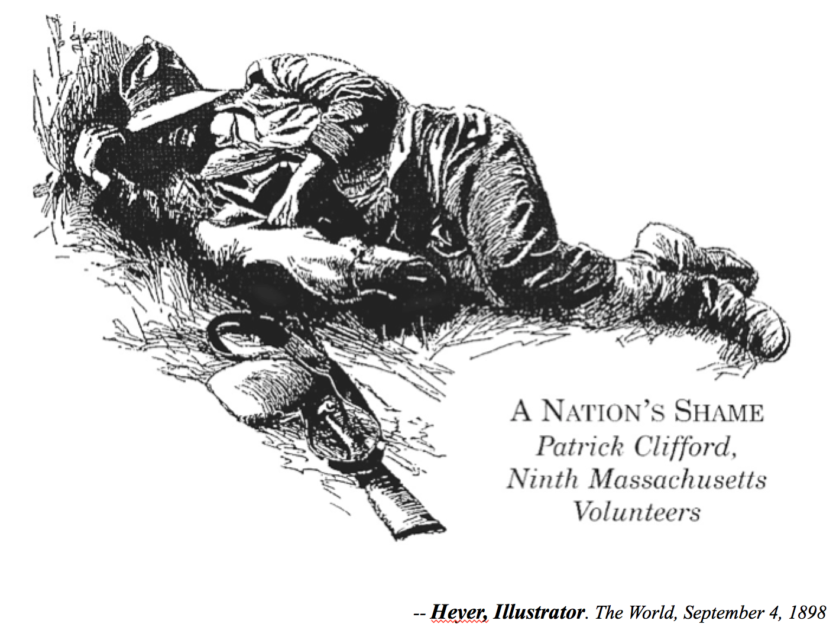
———————————–
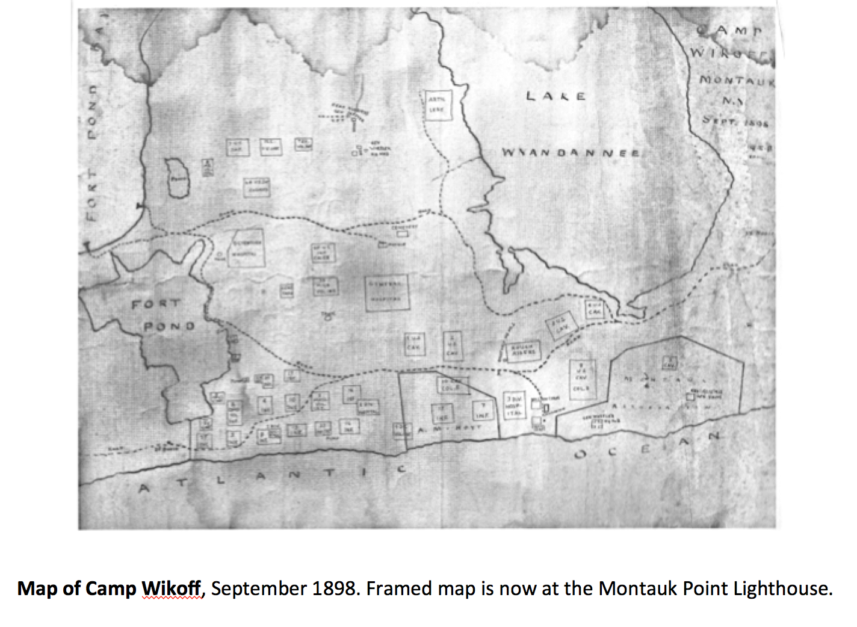
———————————–
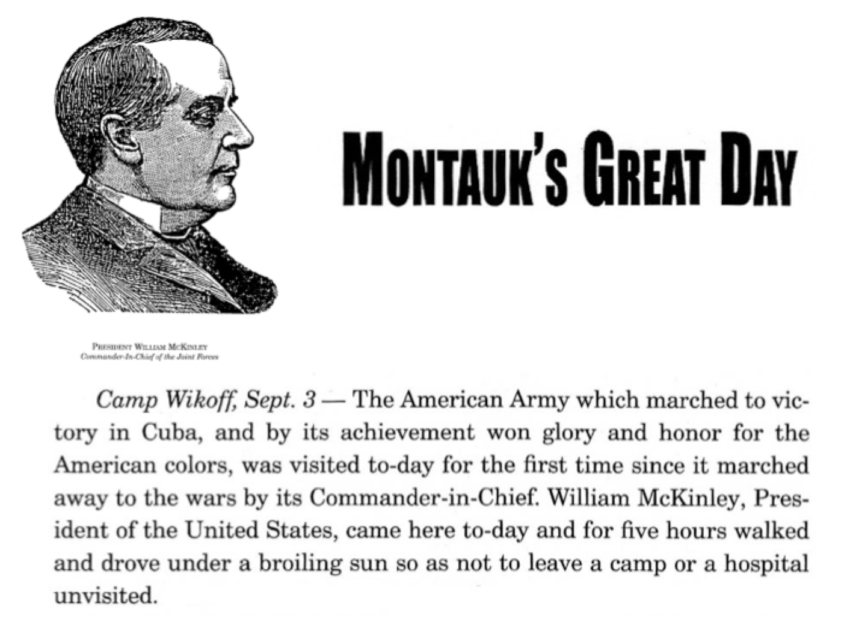
The Presidential Party that visited the troops at Camp Wikoff included President William McKinley, Vice President Hobart, Attorney General Griggs, and Sec. of War Alger, among others. They arrived on Saturday morning, having spent the previous night in Pullman Cars at the Amagansett Rail Road Station.
———————————–
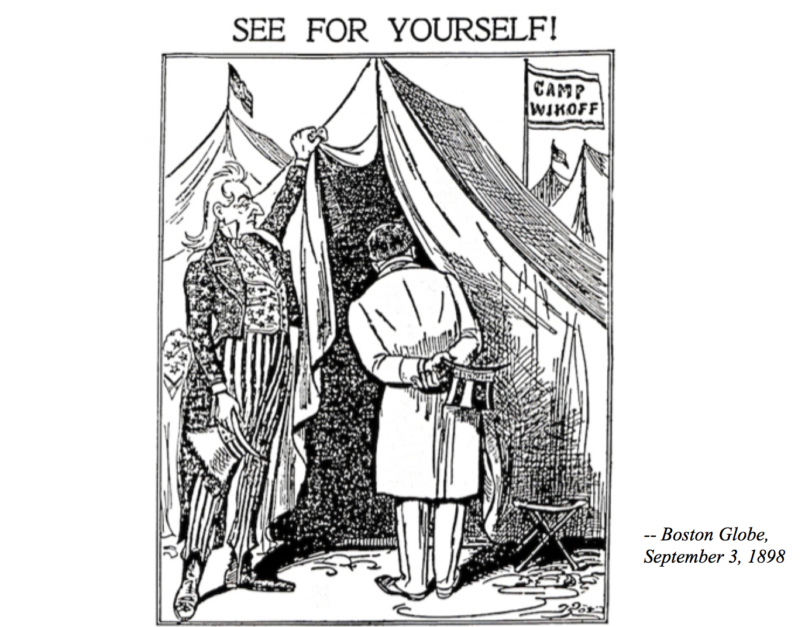
———————————–
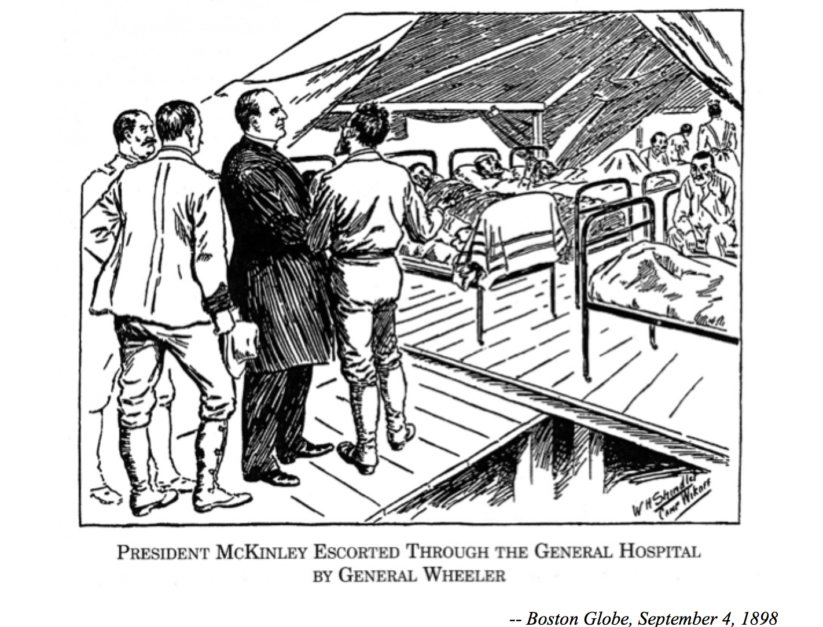
———————————–
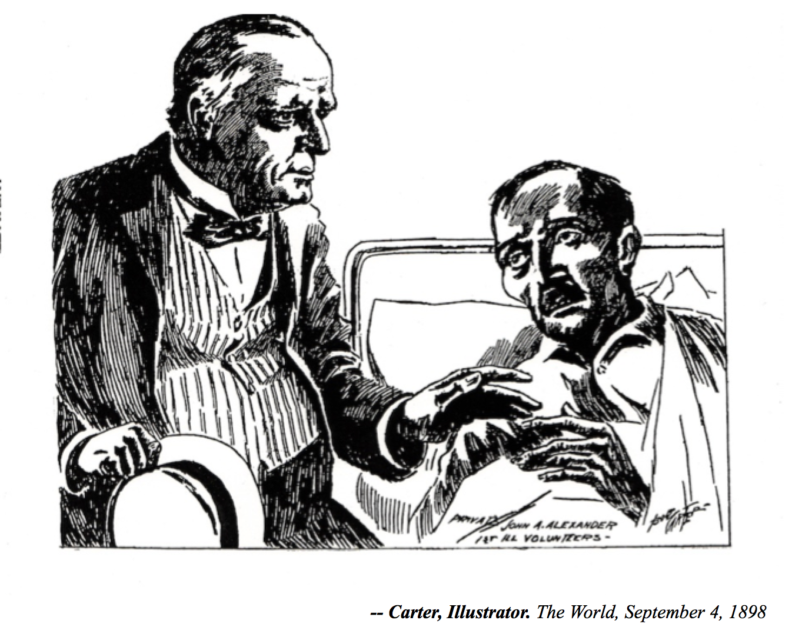
———————————–
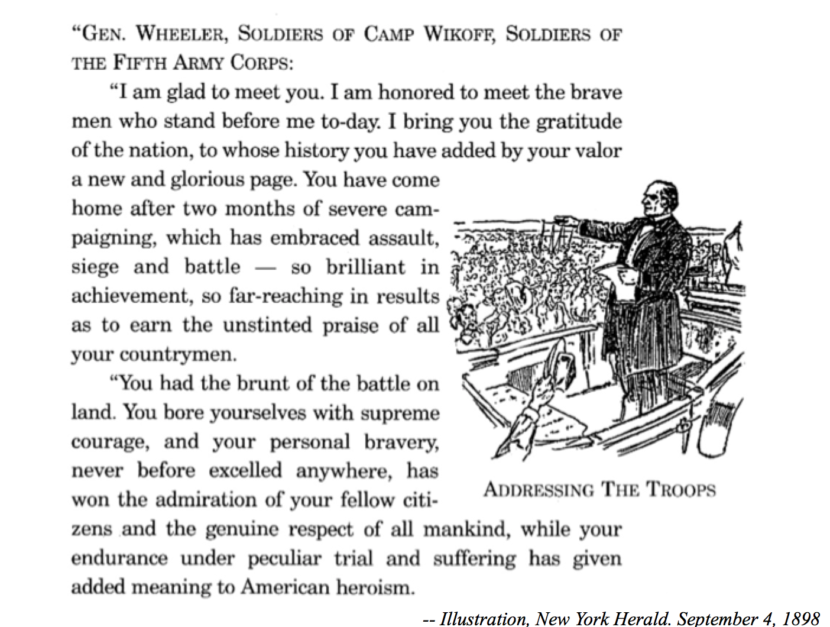
5,000 cheering soldiers greeted President William McKinley on the Great Plain in Montauk, where he addressed the troops for the first time since their arrival home.
———————————–
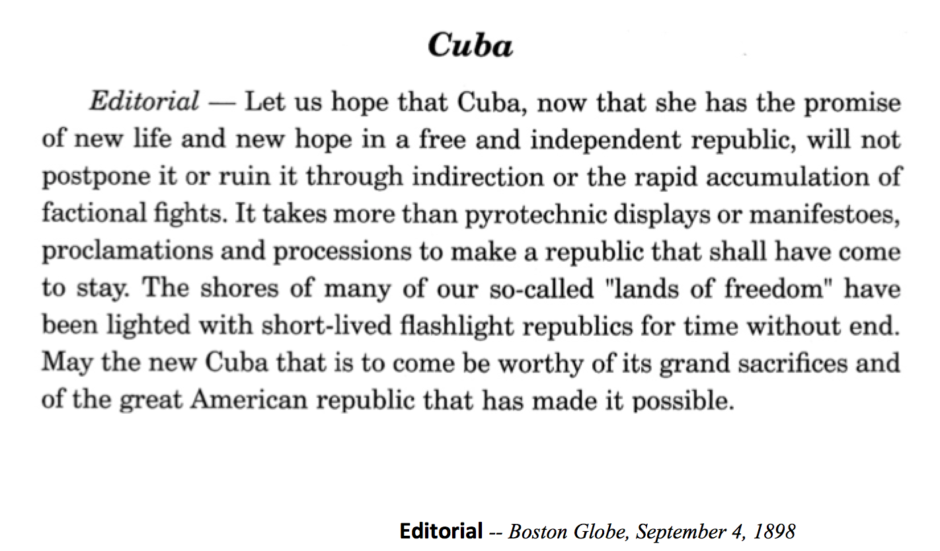
———————————–
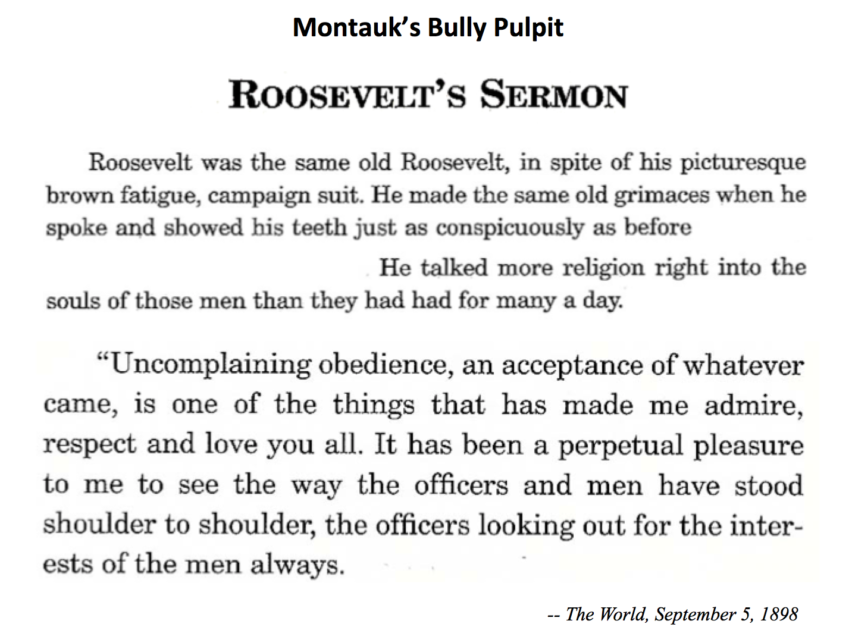
Not sure that he would have another opportunity to speak to the Rough Riders before the regiment was mustered out of service, he delivered this ‘Bully Pulpit’ to his men during the Sunday service.
———————————–
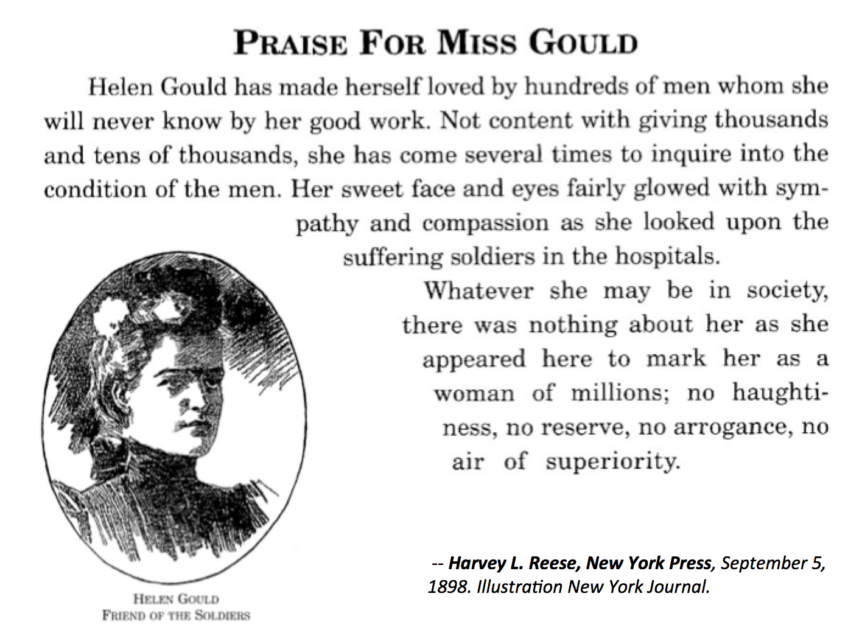
Helen Gould, with Ellen Hardin Walworth, co-founded the National Women’s War Relief Association.
———————————–
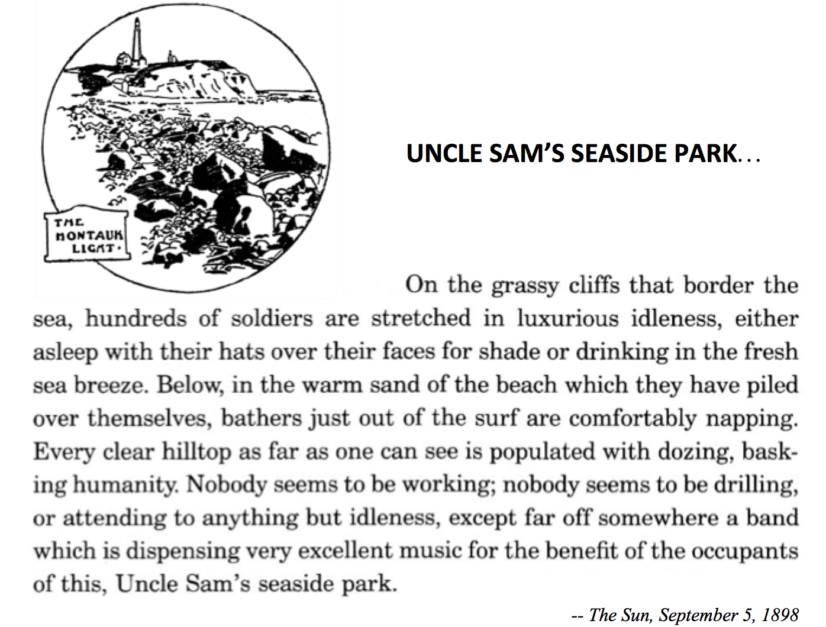
———————————–
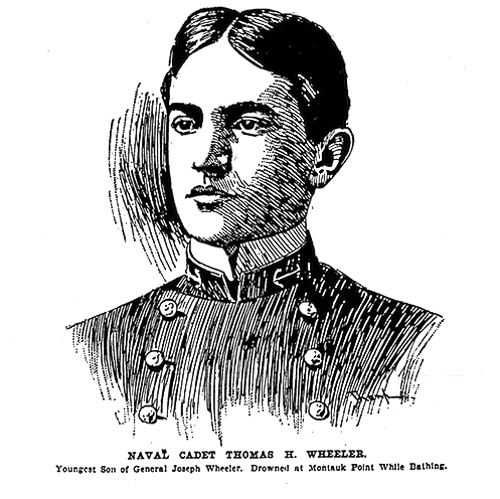
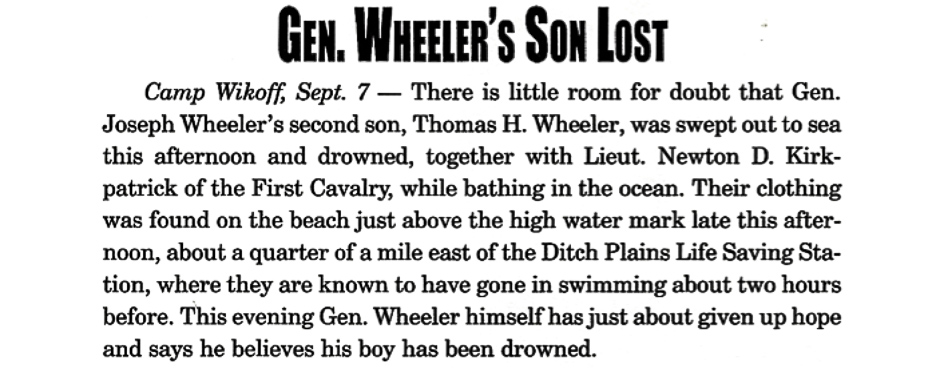
———————————–
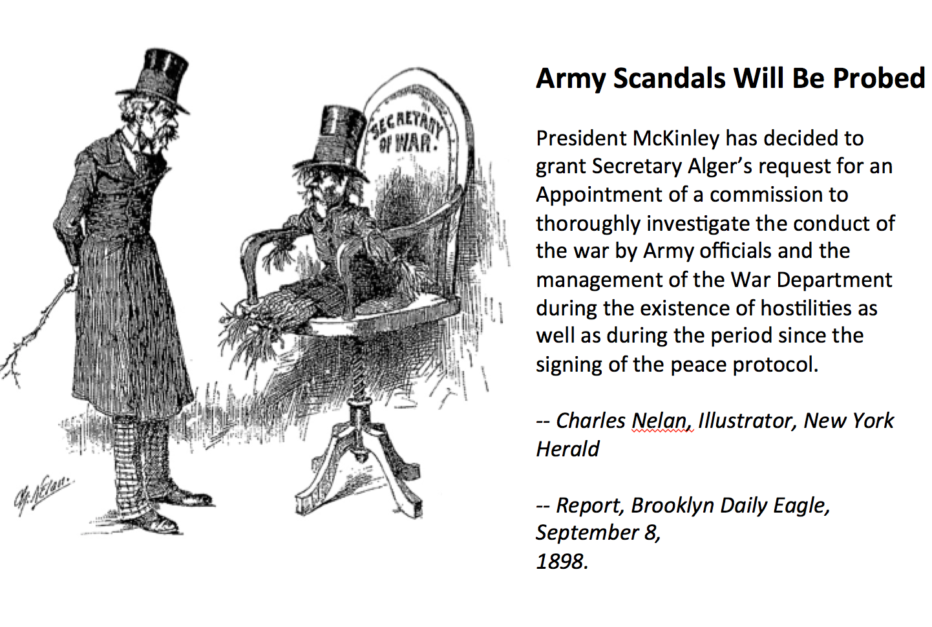
———————————–
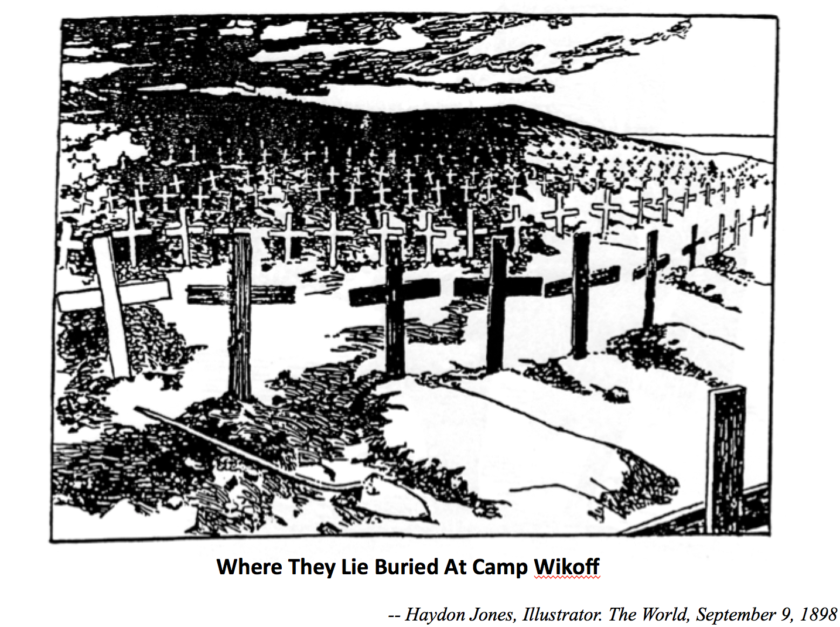
An estimated 340 soldiers died at Camp Wikoff — more than in any single battle of the Spanish American War.
———————————–

Col. Roosevelt did not want to ‘talk politics’ while still in military service, but, with mustering out of the Rough Riders delayed, and with the Saratoga Republican Convention on September 27th, he issued this statement.
———————————–
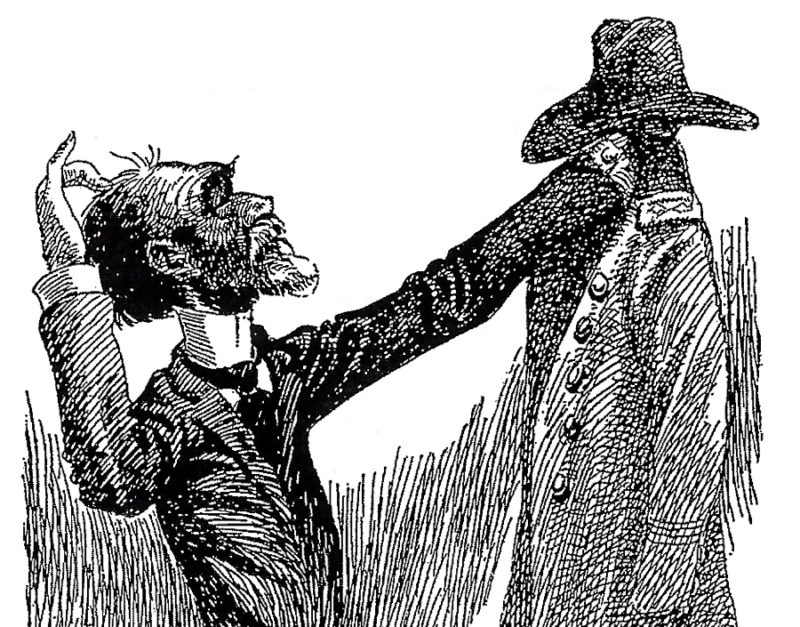
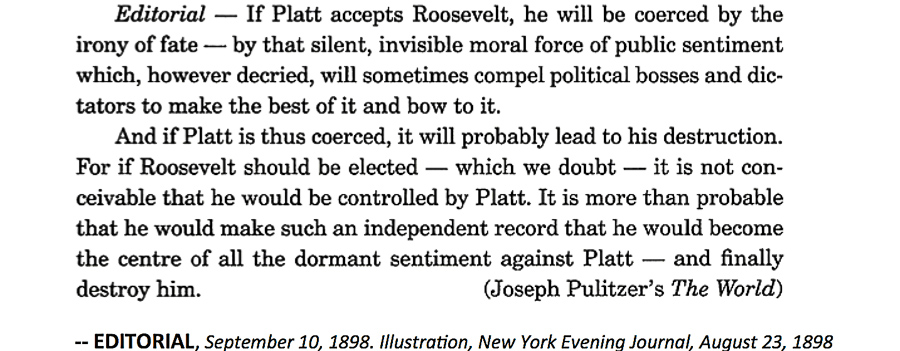
———————————–
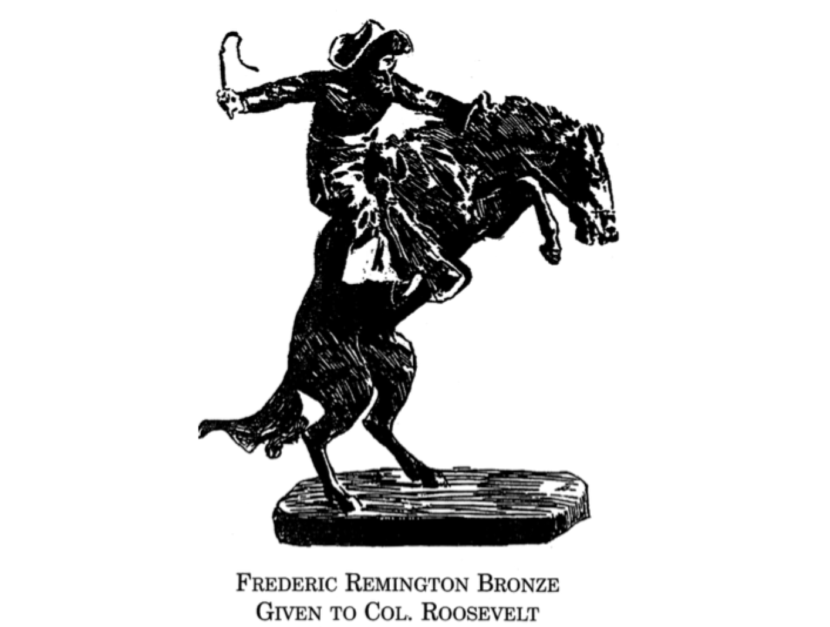
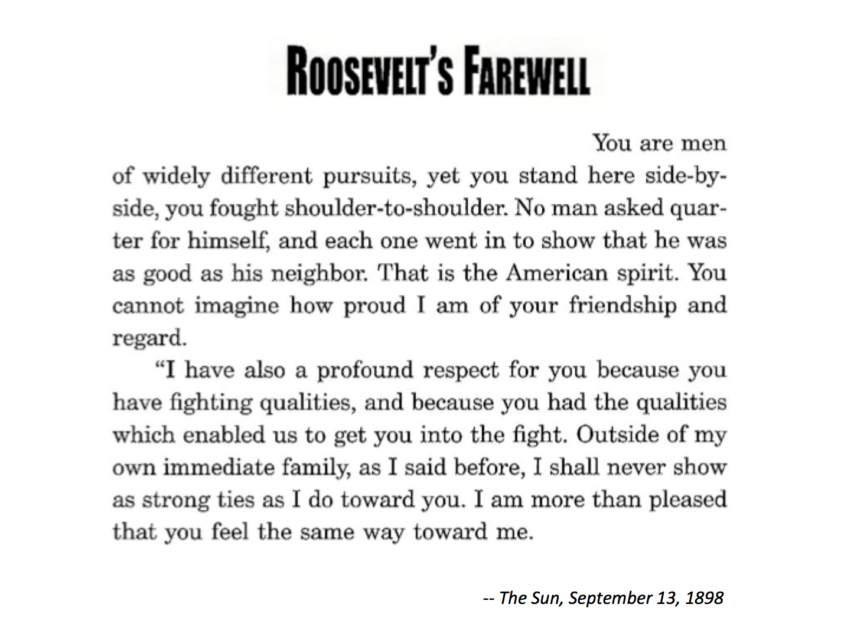
———————————–
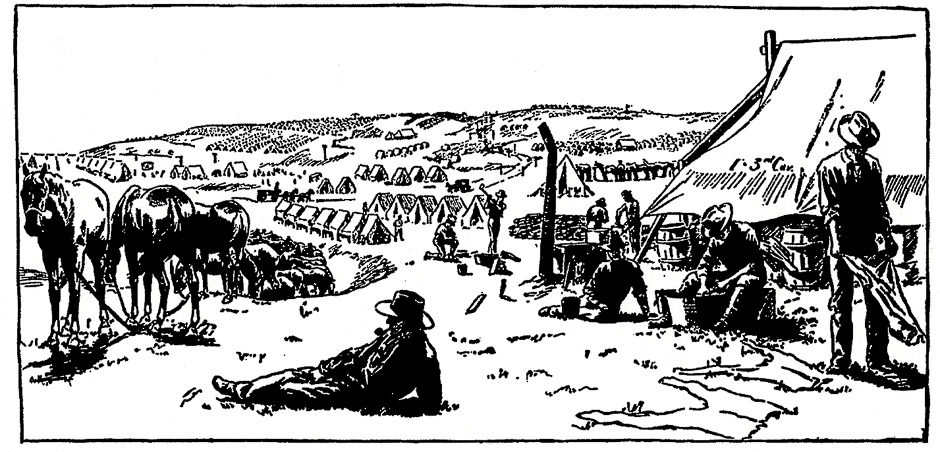
TONIC QUALITY TO THE AIR
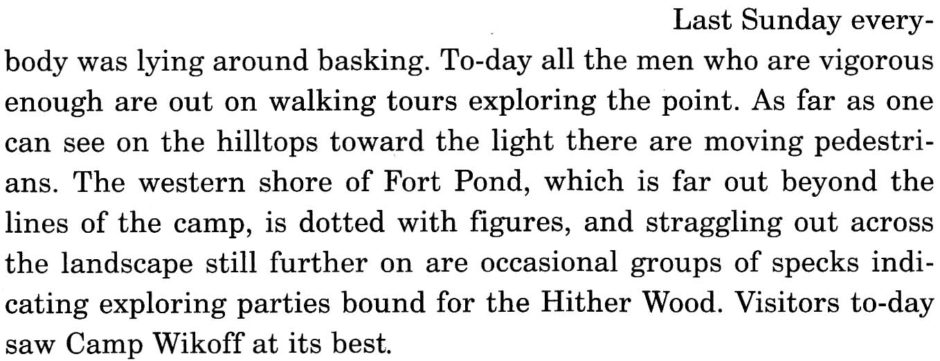
— W.H.Shindler, Illustrator, New York Herald, September 9, 1898. Report, The Sun, September 14, 1898.
———————————–
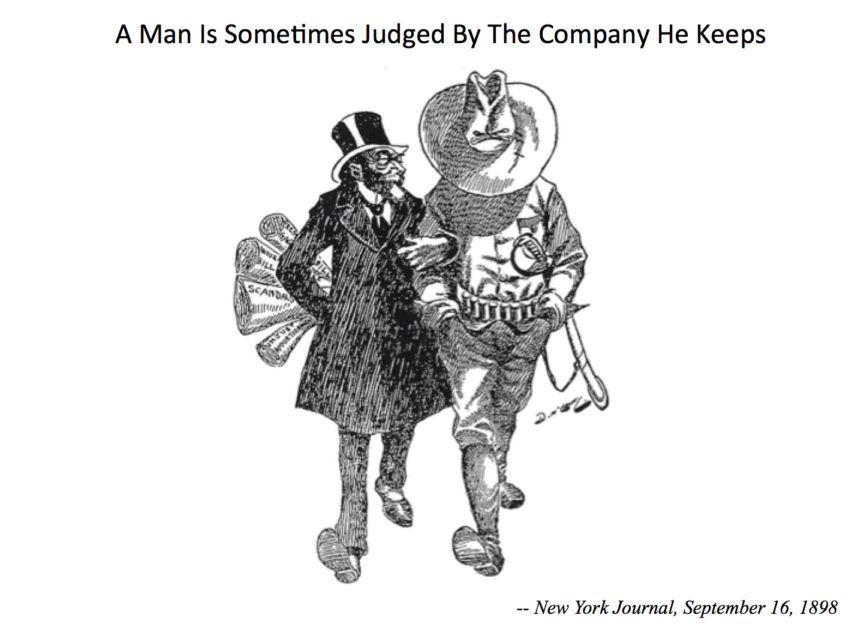
———————————–
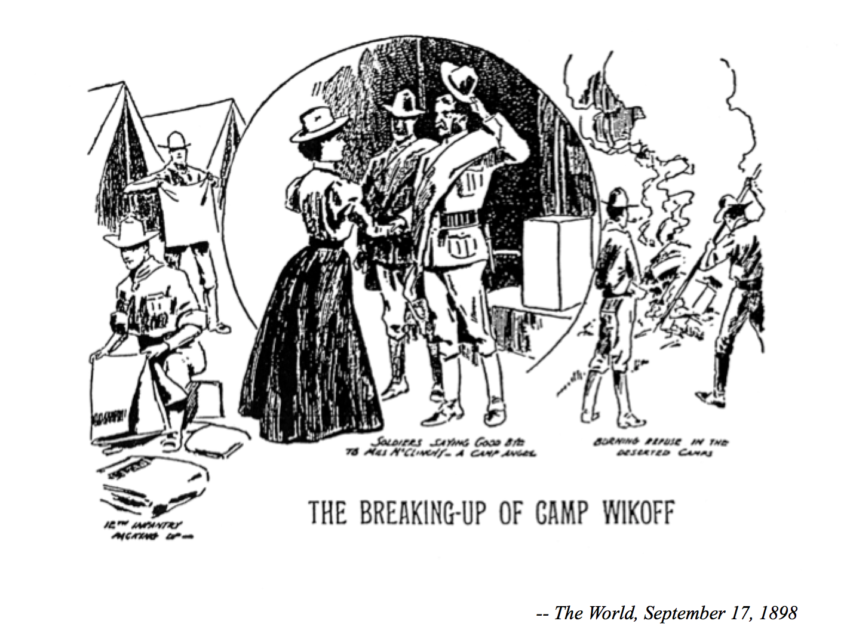
———————————–
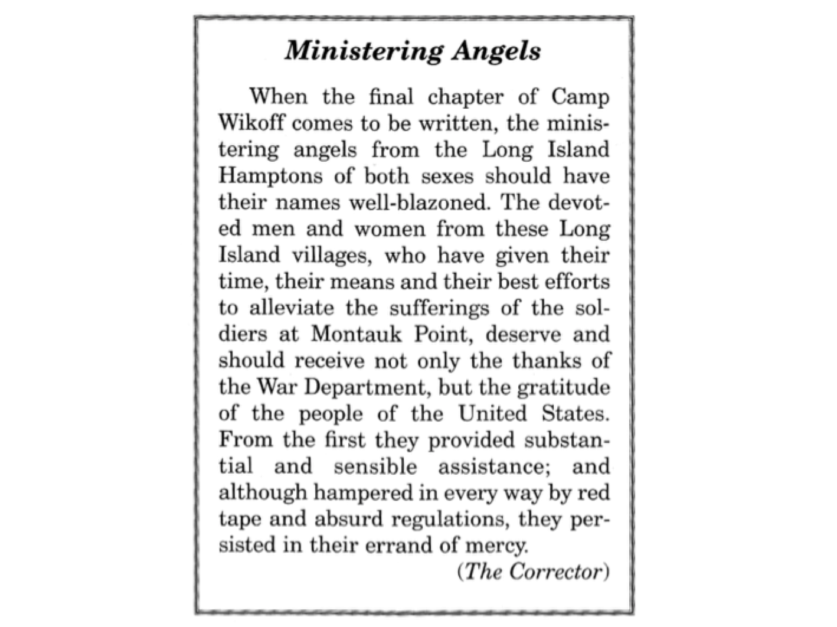
Today, there are few references to Camp Wikoff in Montauk, and no public recognition of those on the East End who came to the aid of the Fifth Army Corps soldiers, saving many lives at the risk of their own.
———————————–
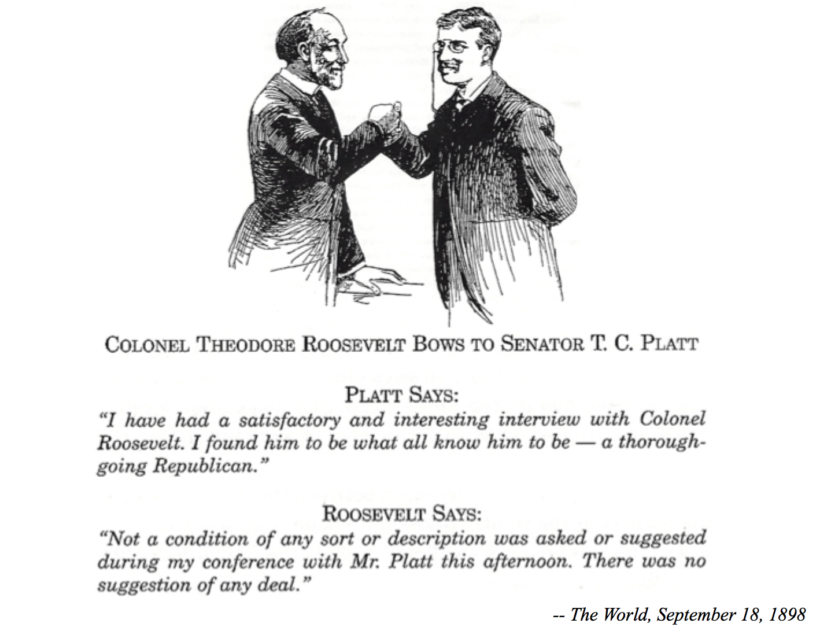
———————————–
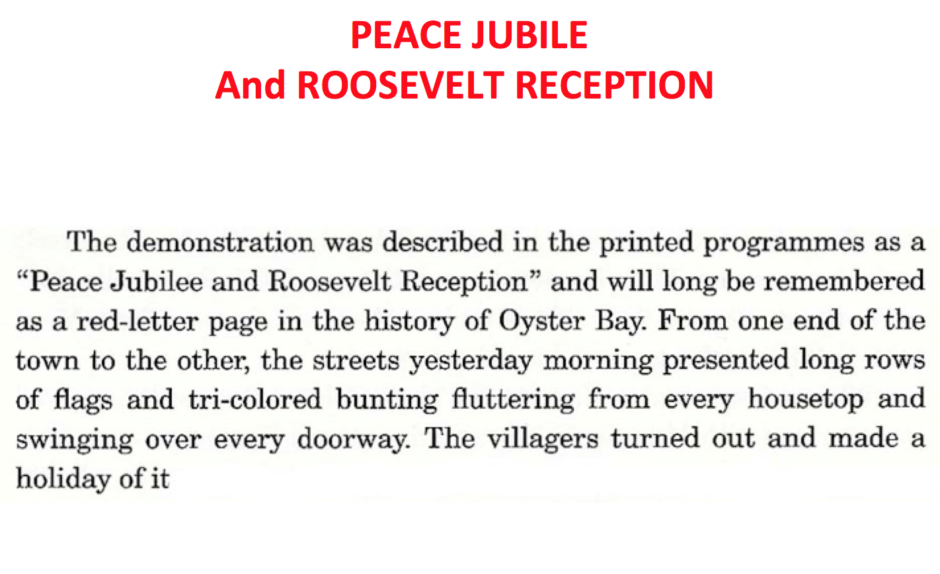
Col. Roosevelt said this about the charge at San Juan Hill, “At last we got the order to support the regular cavalry and make an assault on San Juan Hill in force. Then began the crowded and glorious hour of my life, that hour for which I would not trade my whole existence….” Roosevelt was 39 years old, with six children, when he formed the Rough Riders regiment.
———————————–
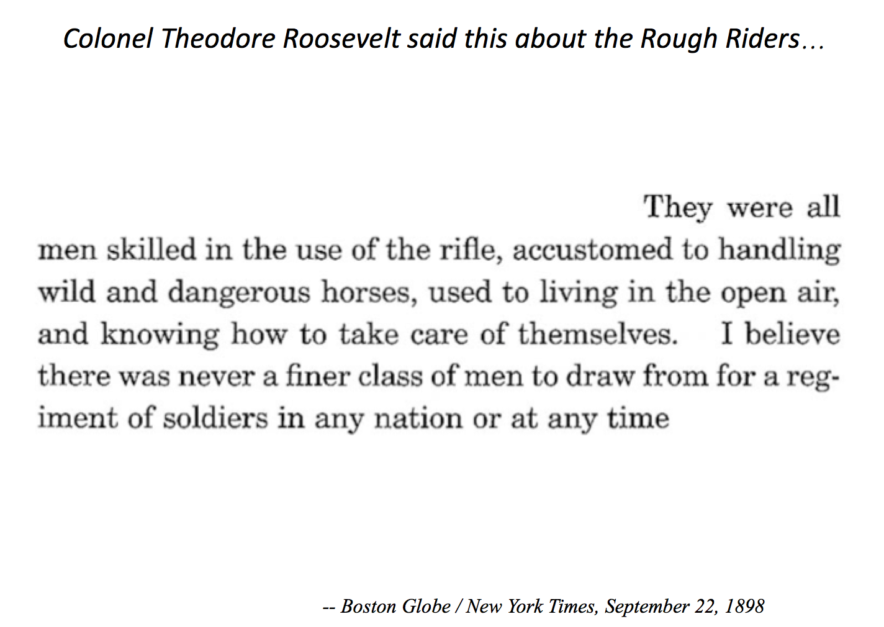
———————————–
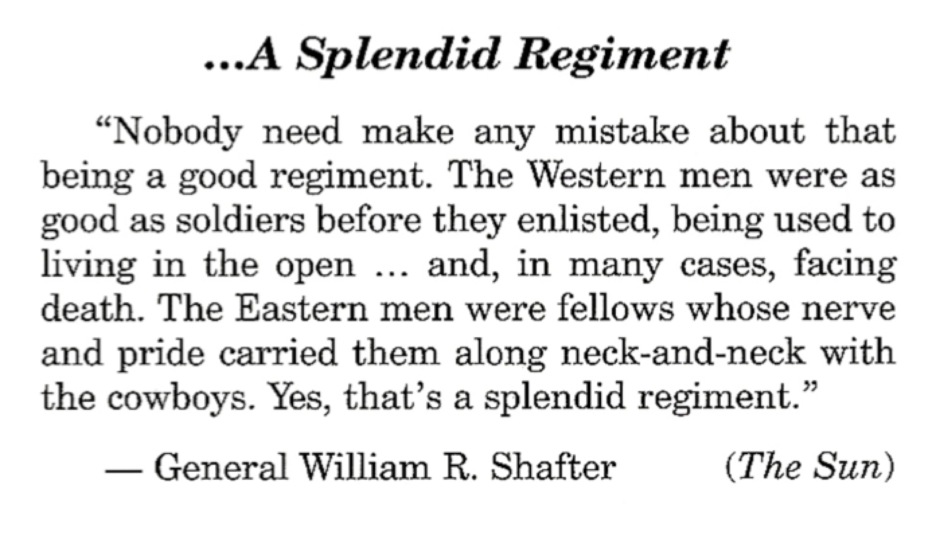
———————————–
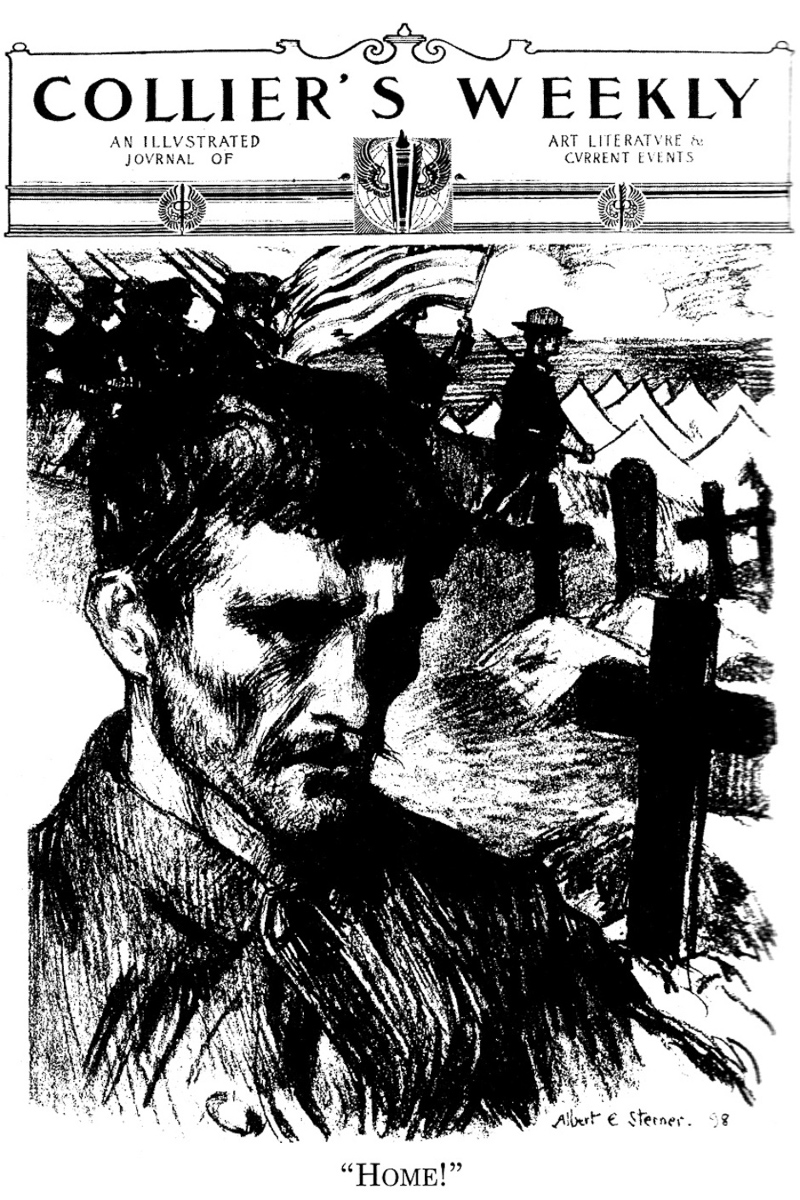
———————————–
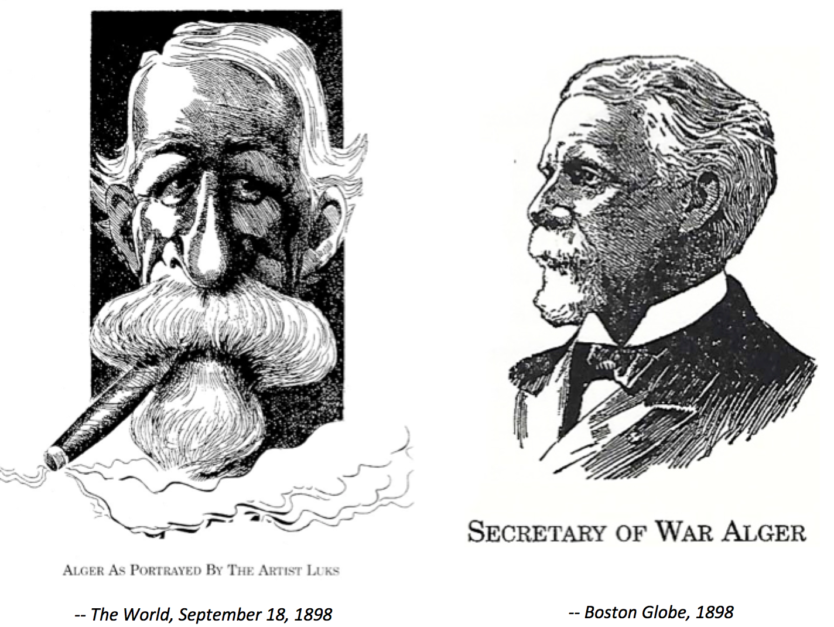
———————————–
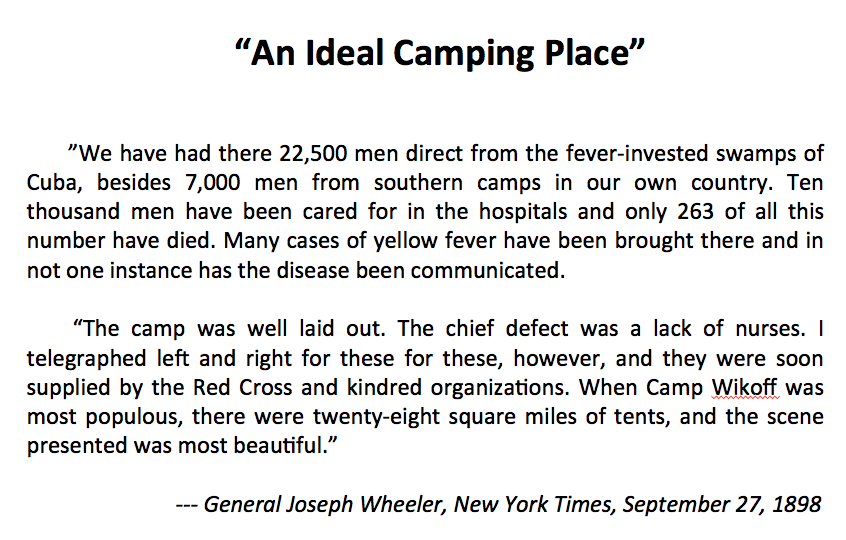
———————————–
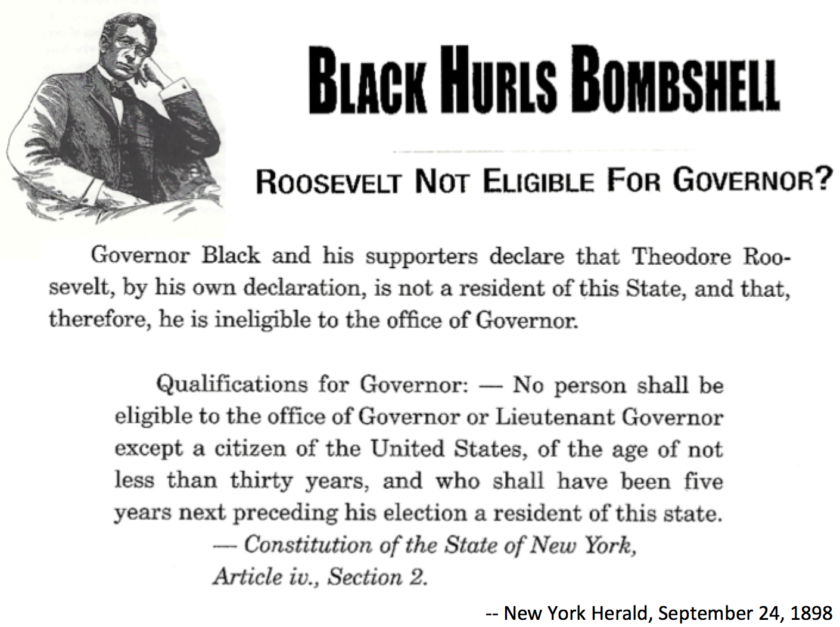
———————————–
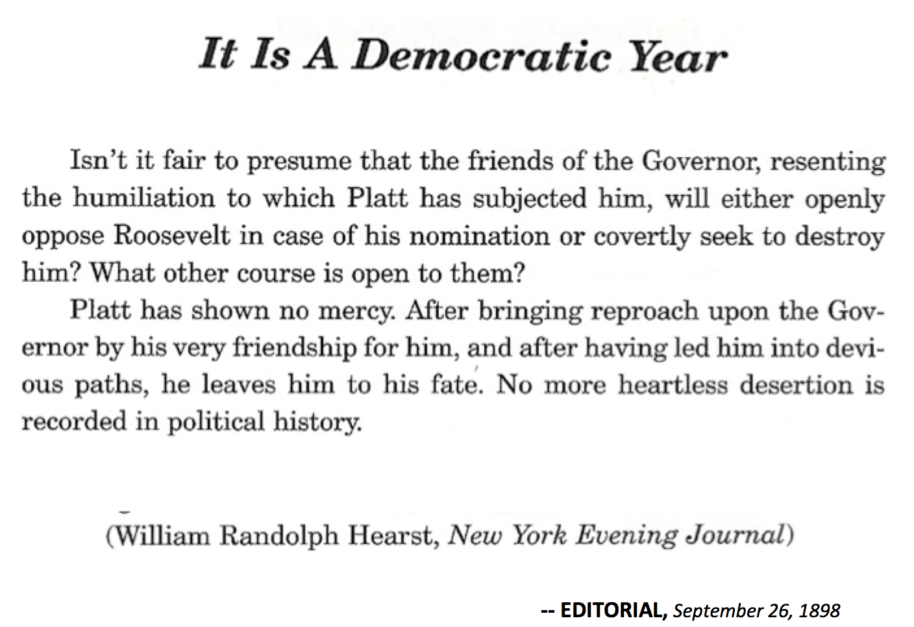
———————————–
Colonel Roosevelt Bitterly Assailed
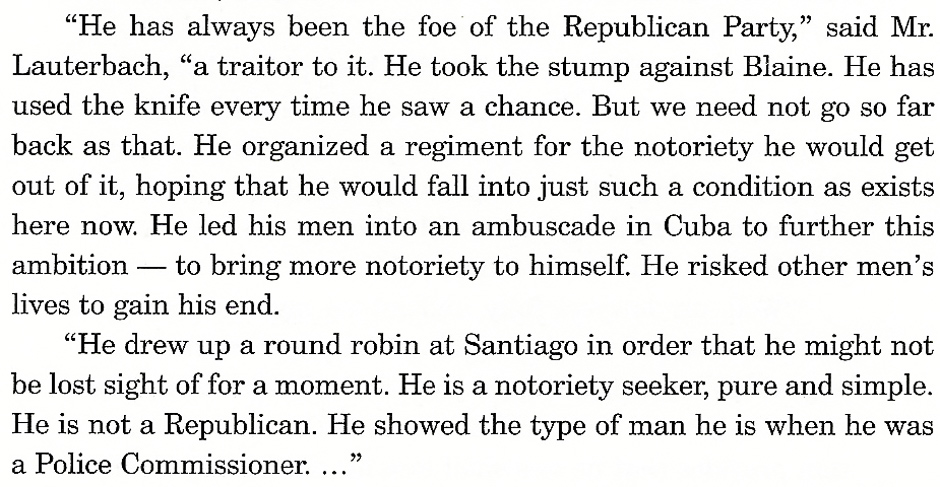
Edward Lauterbach, speaking on behalf of Governor Black, to Senator Platt.
— New York Herald, September 26, 1898.
———————————-
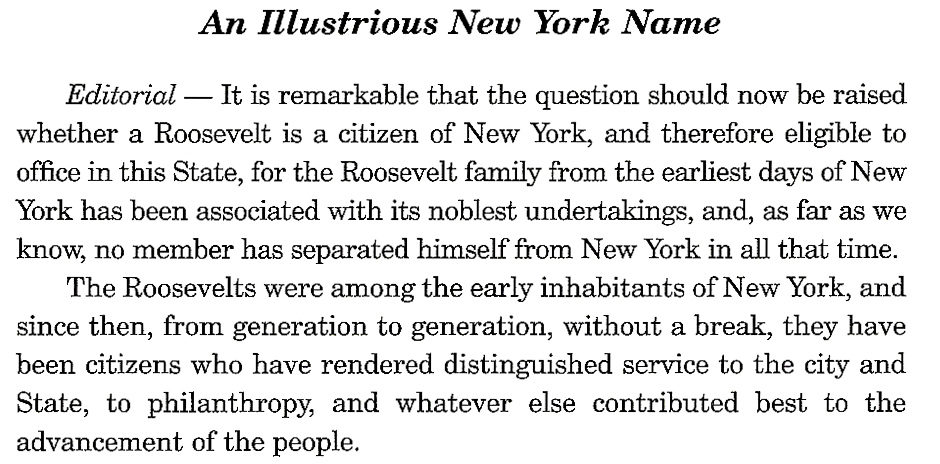

— Editorial, The Sun, September 27, 1898
———————————-
NOT REALLY A NEW YORKER
He is a brave soldier. It if were part of the duty of the Governor of New York to scramble through barbed wire fences and evict Spaniards from block houses with a sword and revolver, Mr. Roosevelt could be trusted to do the work to the general satisfaction. Moreover, he is naturally antagonistic to boss rule. The fact that he is now compelled to be subservient to Platt is vexatious to him, and if he were elected it is quite conceivable that he might revolt, as Governor Black has done.
But, Mr. Roosevelt is not cut out for the Governorship of this State….Whether his residence be technically in Oyster Bay, New York, or Washington, and regardless of the time his family has been rooted in our soil, he is not really a New Yorker. He has no understanding of or sympathy with the feelings of the people of this State. He cannot comprehend the spirit of individual independence that prevails in this commonwealth. He is always wanting to discipline somebody, to be a paternal despot, to enforce his ideas of virtue and propriety on the community with a club. His inveterate meddlesomeness made him very unpopular in this city when he was in a position in which he had nothing to do but to enforce the laws as he found them. One shudders at the thought of the situation if he had a hand in making them….
— Editorial, William Randolph Hearst’s New York Evening Journal, September 28, 1898.
———————————–
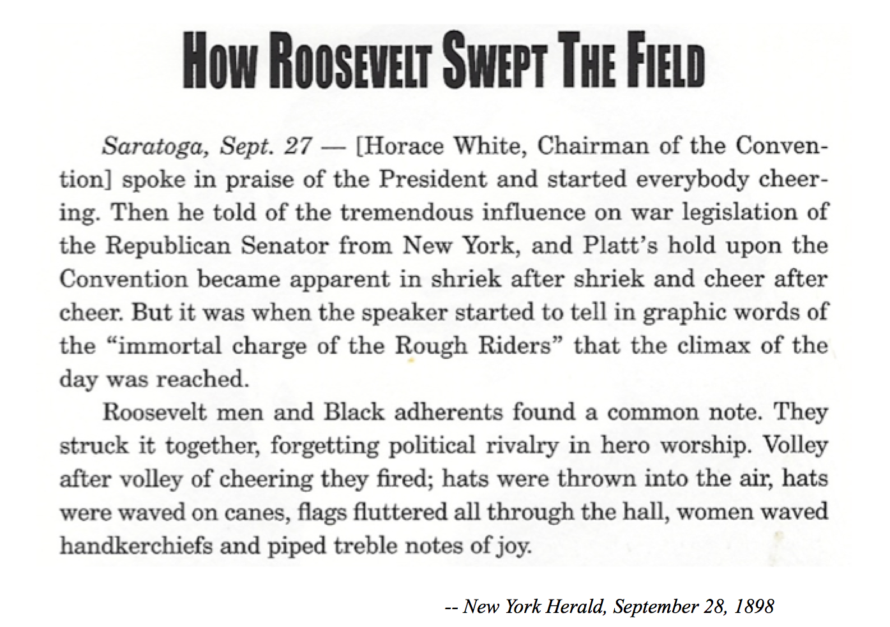
———————————–
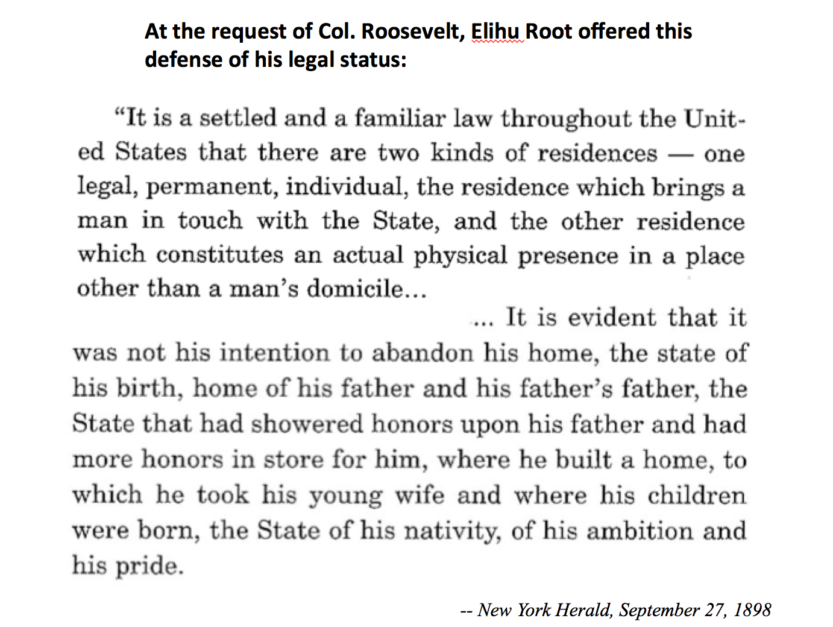
———————————–
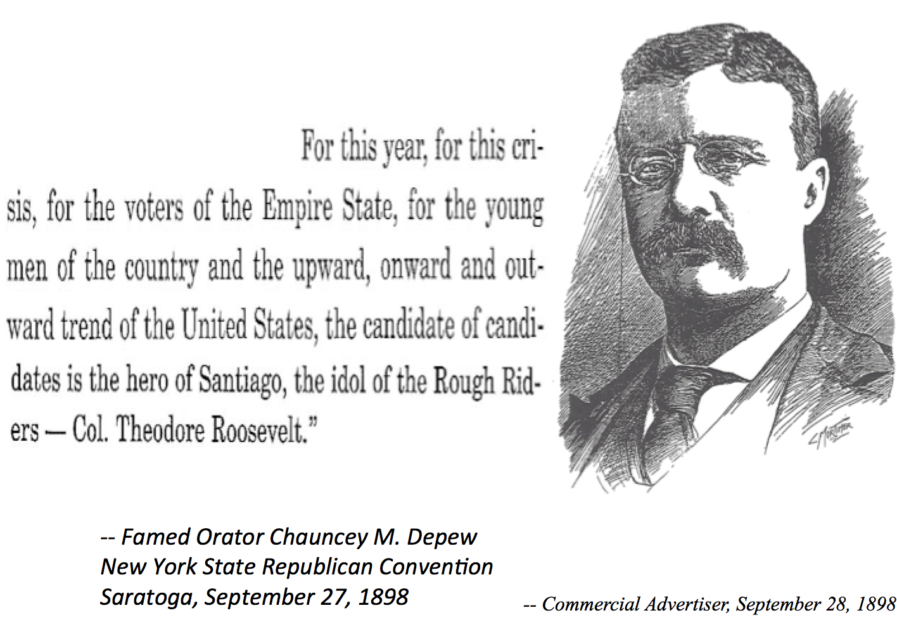
———————————–
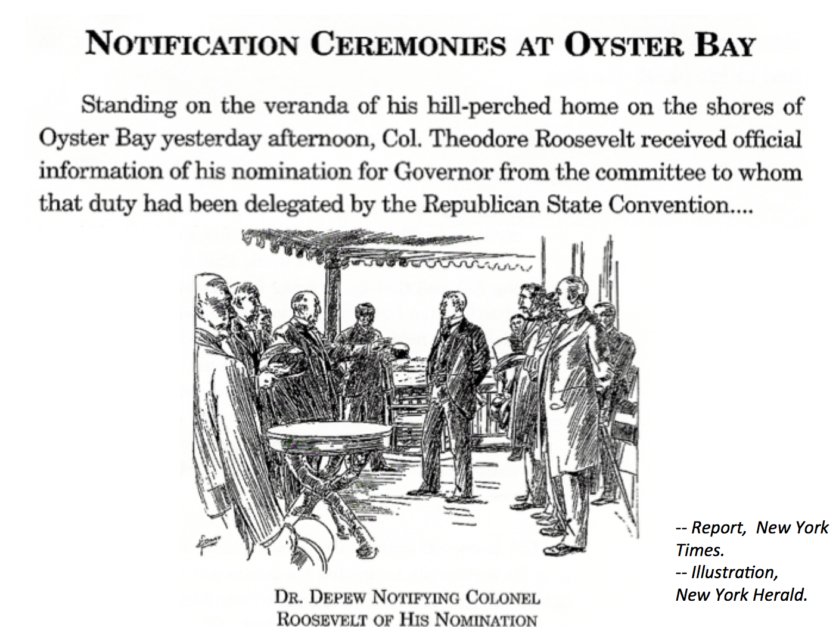
———————————–
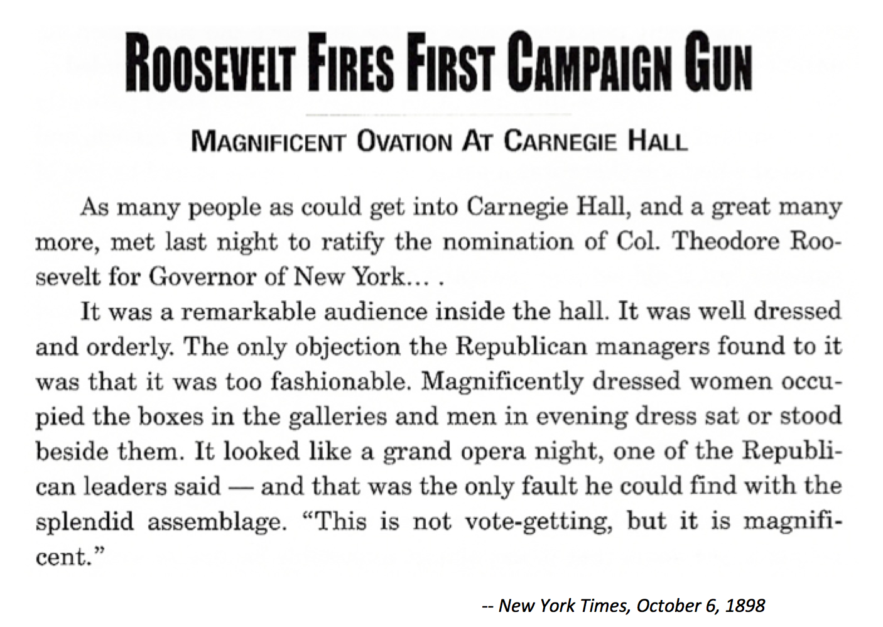
———————————–
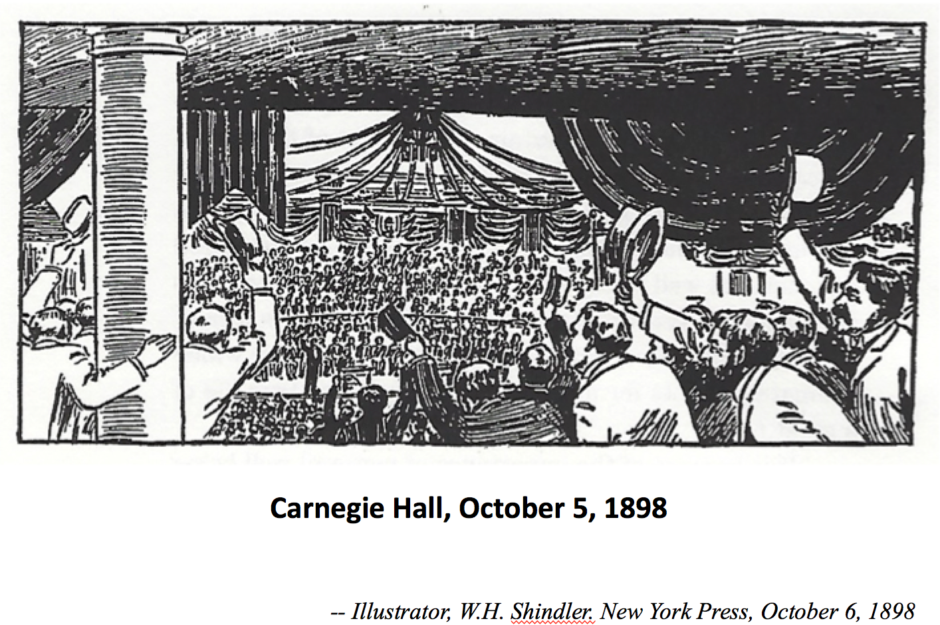
———————————–
NYS Republican Gubernatorial Candidate
Theodore Roosevelt
Col. Roosevelt’s entry…..heralded by an outburst of cheering outside the hall…..was at once caught up within and swelled to terrific proportions when people caught sight of the candidate.
Col. Roosevelt’s pictures give the public a correct likeness of him, and yet it would be almost impossible to identify him from them. His face has not the well-groomed and somewhat dandyish affect which some of his half-tone portraits show, and he has a peculiar sort of smile, rather boyish, as he blinks his short-sighted eyes through his glasses. He has a ruddy, healthy complexion which the photographs miss, of course, but which is an essential part of the tout ensemble. He looks somewhat older than his retouched photographs make him out to be, and yet the general impression which he makes at first sight at least, is that of a big, hearty, energetic young fellow, too busy to have room for humbug either in his heart or in his mind.
— Commercial Advertiser, October 6, 1898.
———————————–
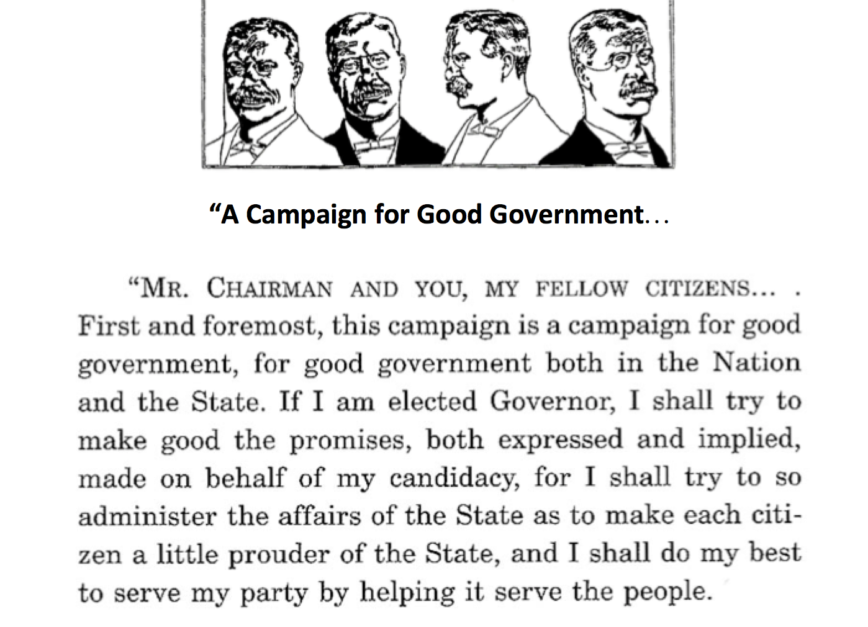
———————————–
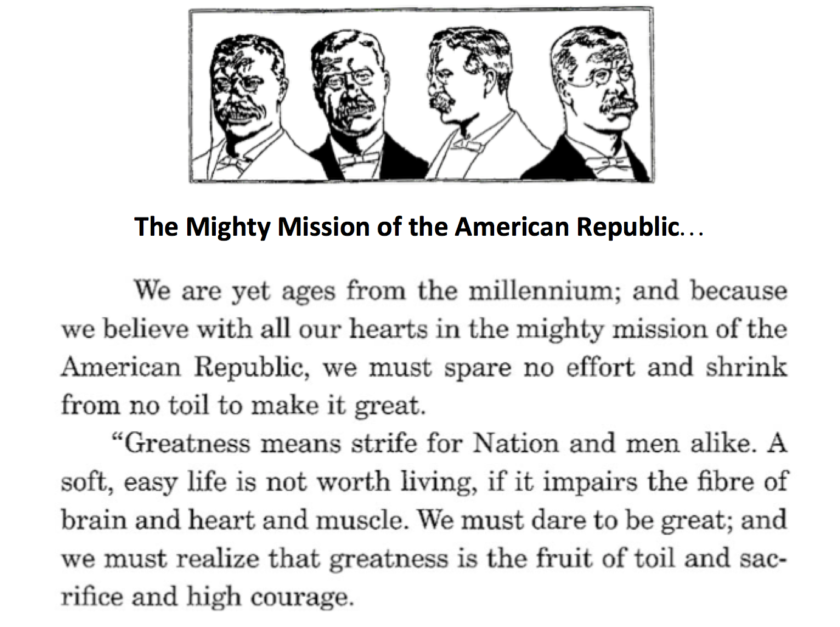
———————————–
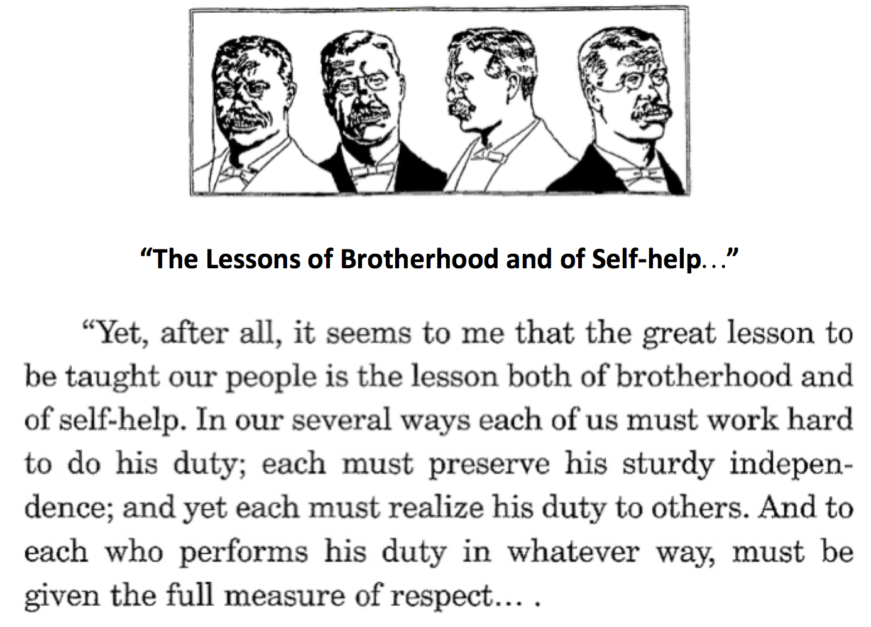
———————————–
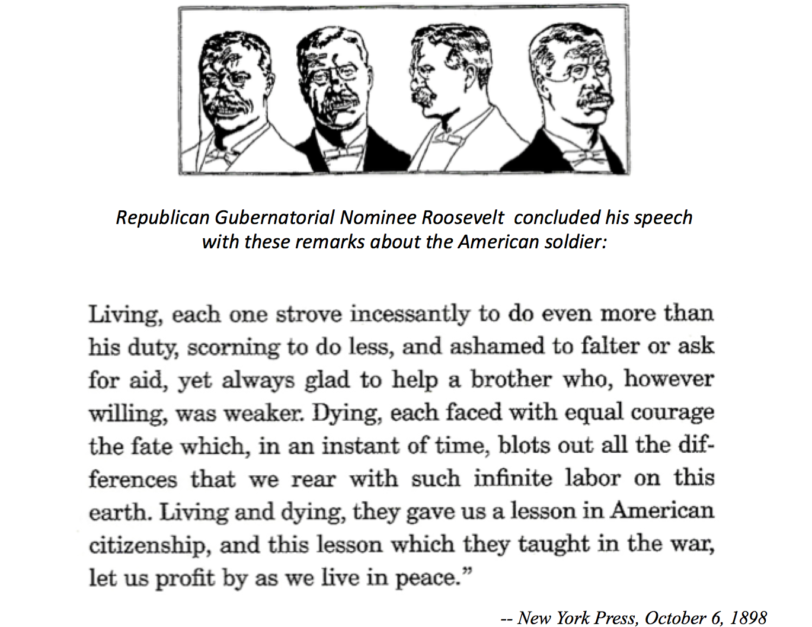
———————————–
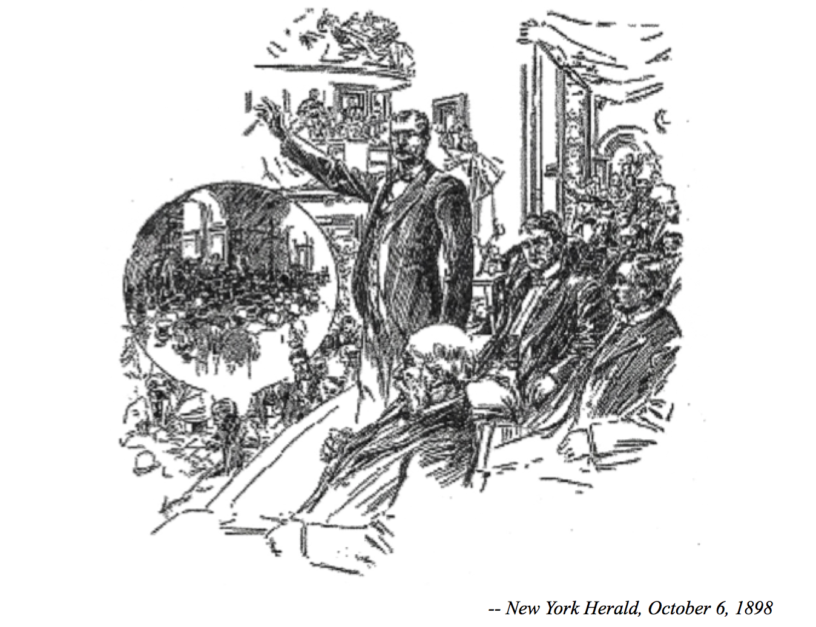
———————————–
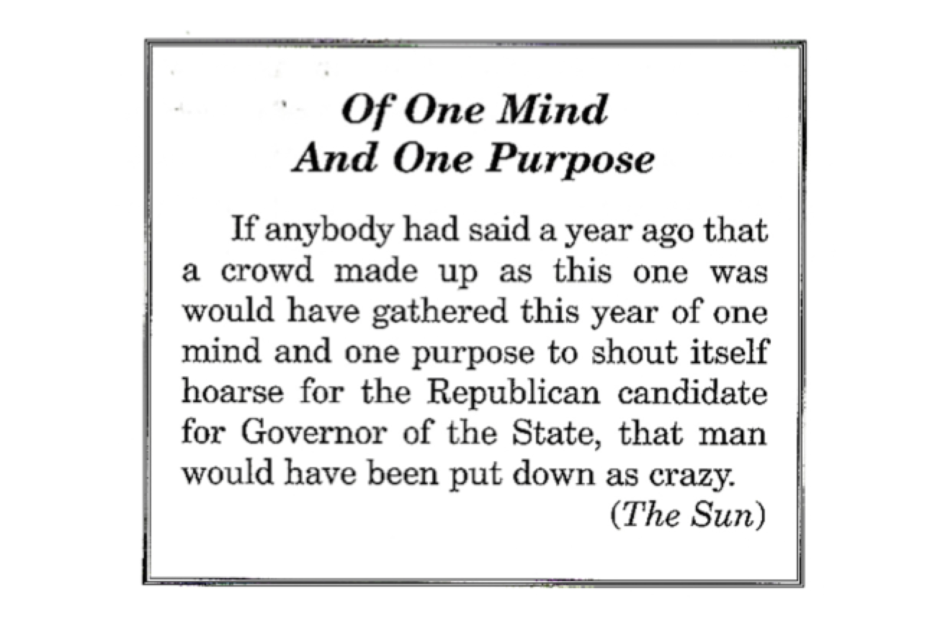
———————————–
A MODERN PALADIN
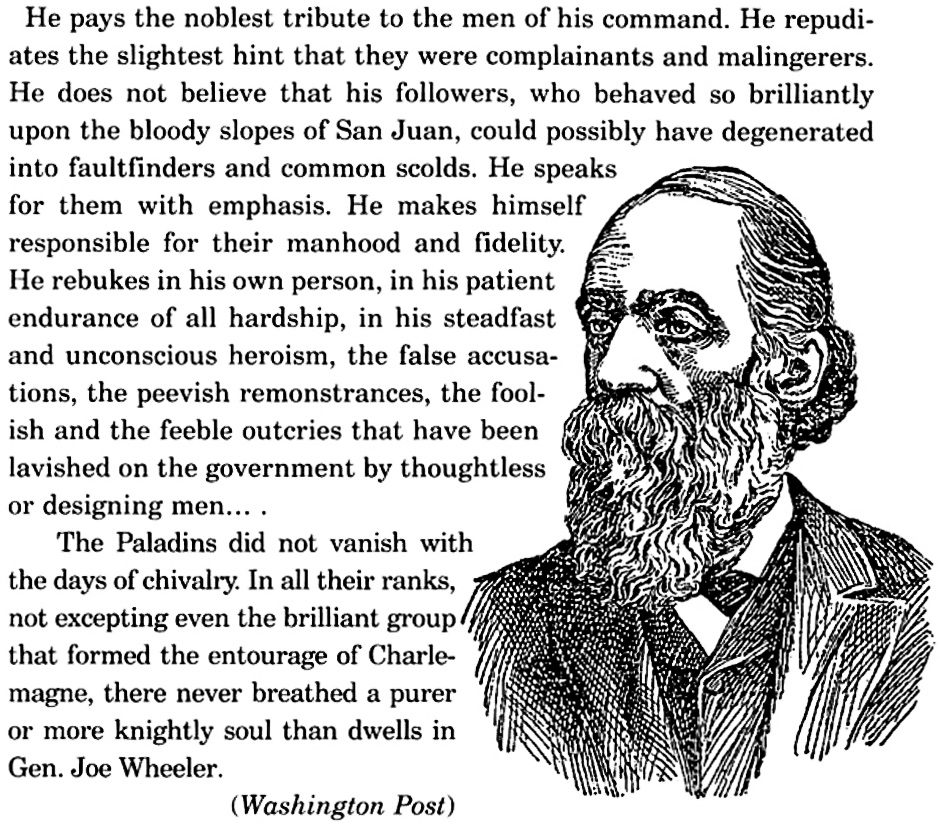
— October 6, 1898
Gen. Wheeler (West Point, 1859) was in command of the Cavalry Division in Cuba. He was also in command of Camp Wikoff from August 19 thru September 4 (followed by Gen. Shafter). Gen. Wheeler was one of only four Generals to serve in the Confederate Army and the U.S. Army — and the only one to see action in both the Civil War & the Spanish-American War.
———————————–
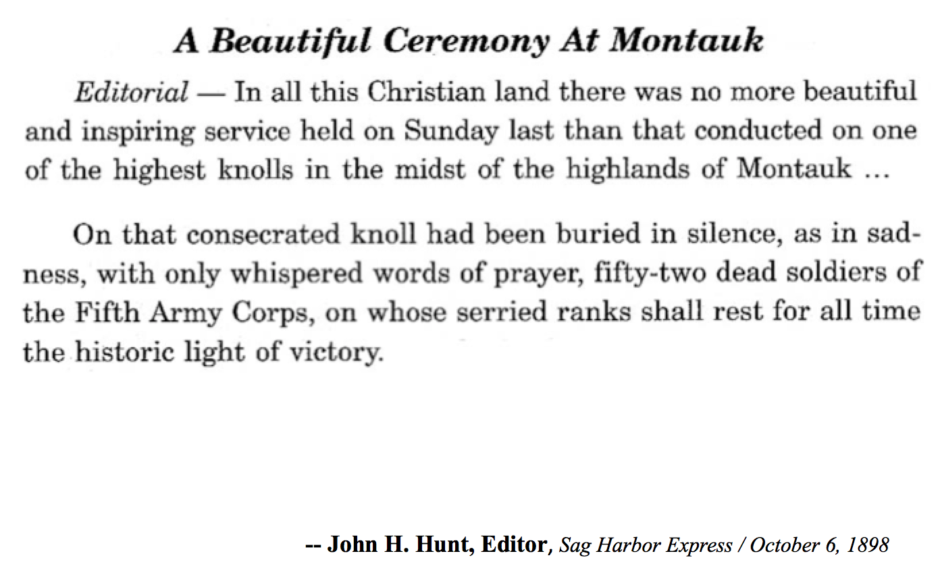
Taps had not been played when soldiers were buried at Camp Wikoff — it was thought that the sound of Taps for those still suffering from tropical fevers in the General and Detention Hospitals would be disheartening.
———————————–
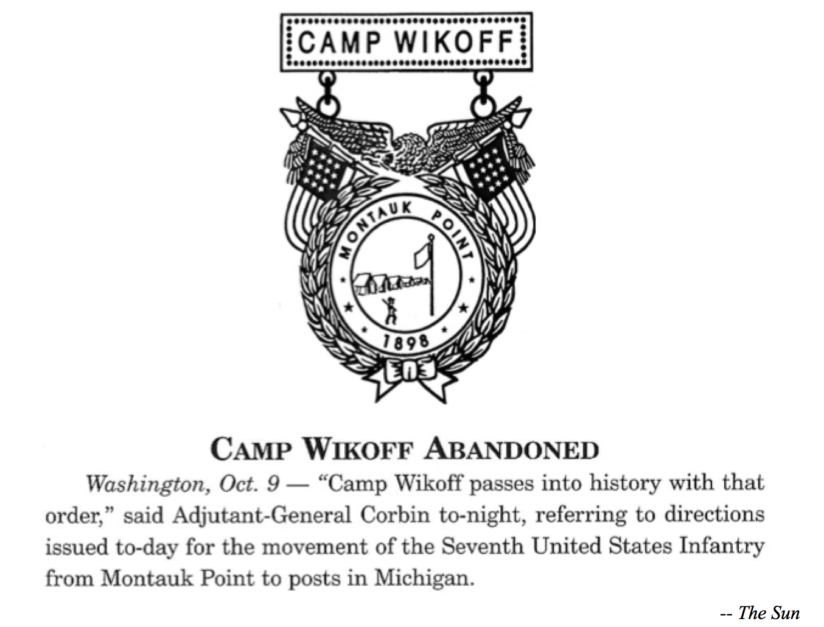
———————————–
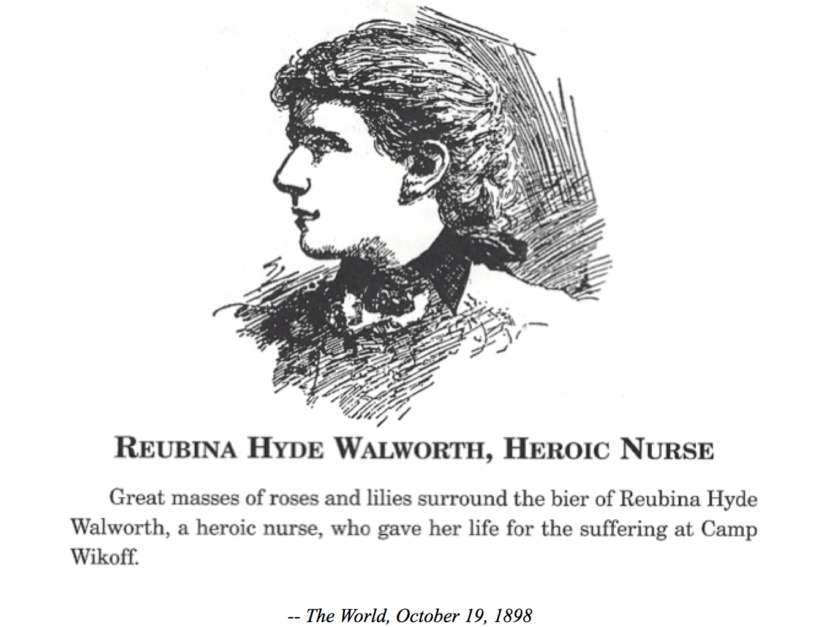
Reubina Hyde Walworth was an art student at Vassar when she decided to be a nurse at Camp Wikoff. Against her mother’s wishes, however, she volunteered to work in the Detention Hospital, where she contracted a ‘malignant’ form of typhoid, from which she eventually died on October 18, 1898.
———————————–
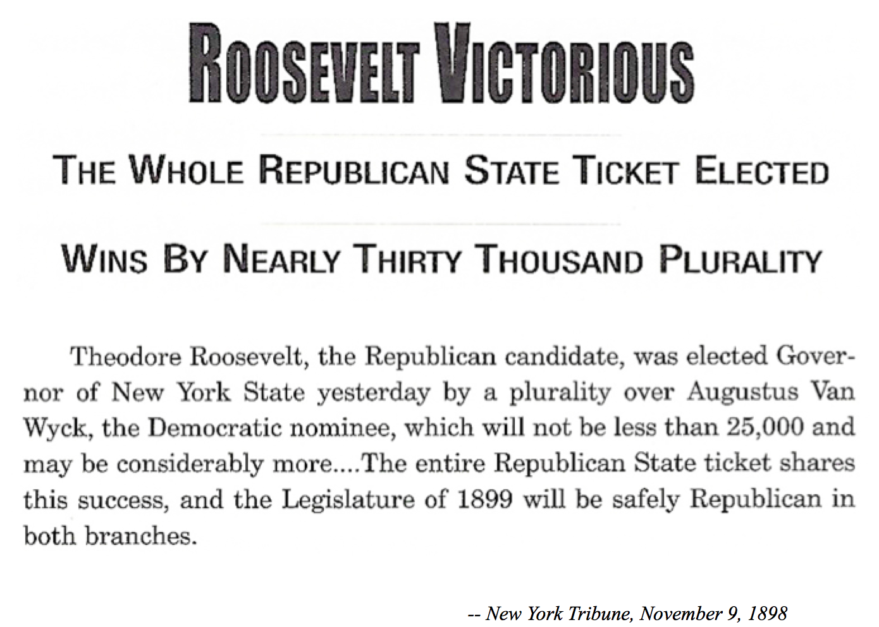
———————————–
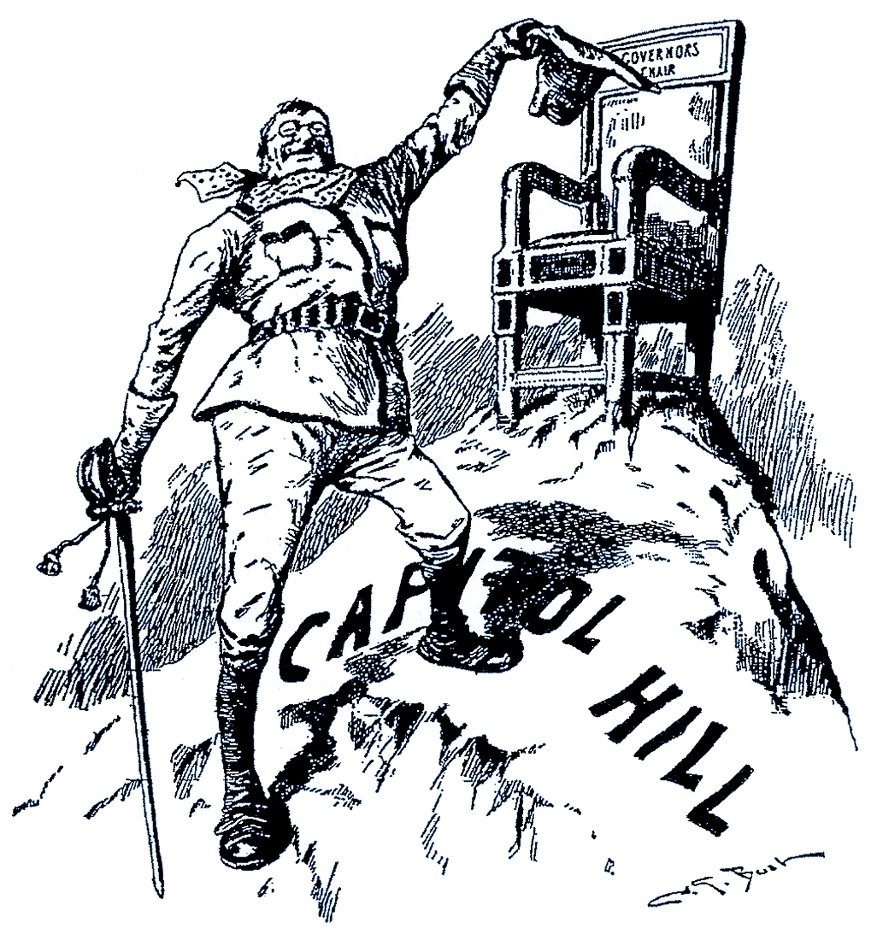
Theodore Roosevelt carries with him into the Executive Office the character which he has borne ever since his fellow citizens began to know him, and that is a character of absolute independence, absolute fearlessness, and honesty as bright as the sunshine.
— Editorial, New York Tribune, November 9, 1898. Illustration, The World.
———————————–
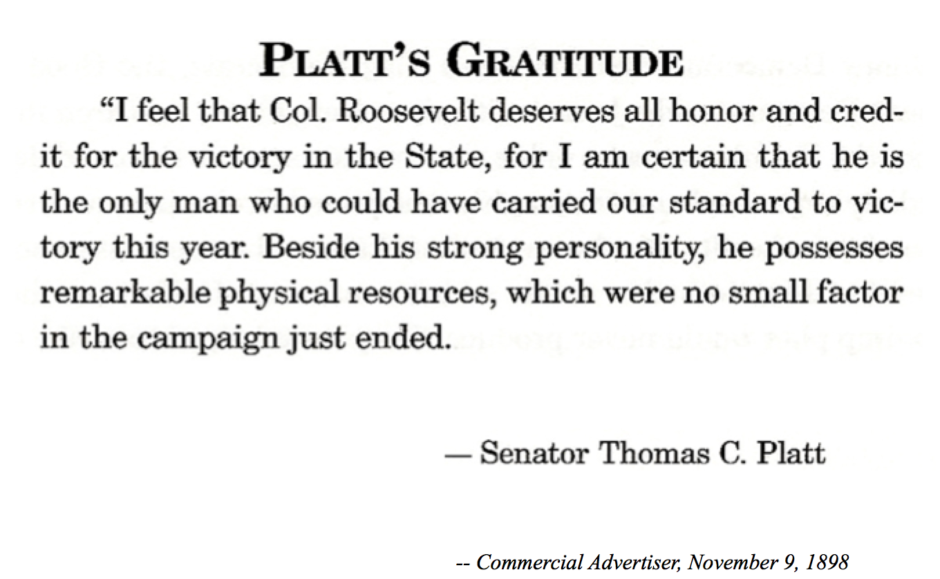
The emphasis here is on Roosevelt’s ‘remarkable physical resources’, as he had to conduct his campaign throughout New York State in the month of October.
———————————–
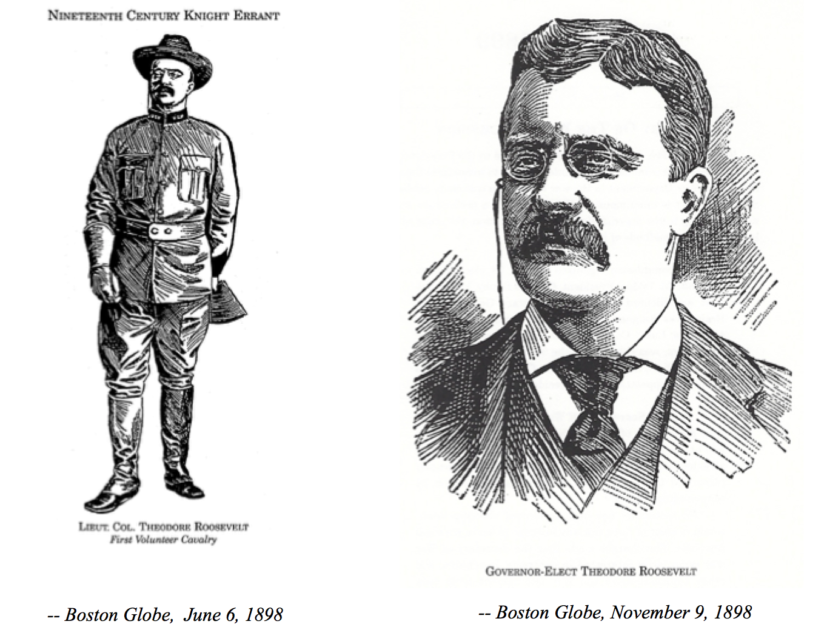
Before & After the War.
———————————–
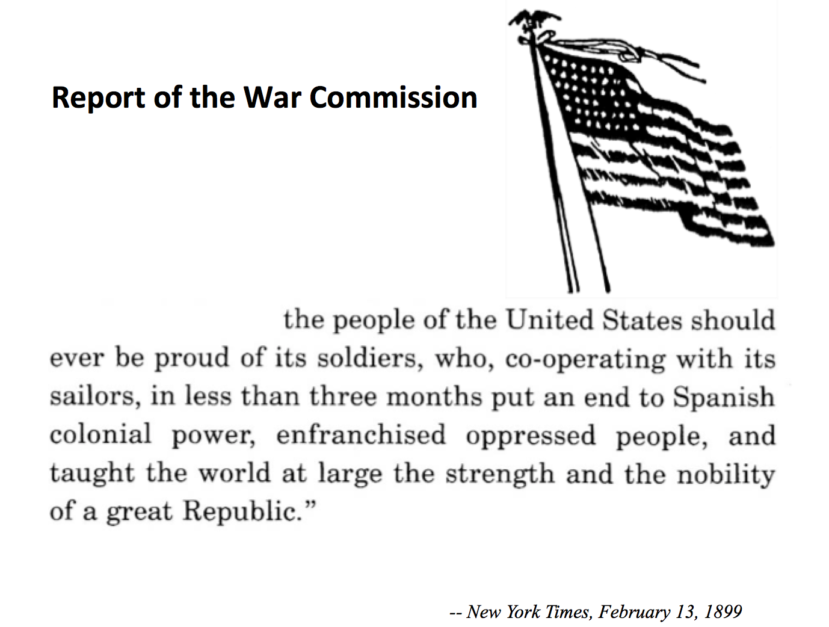
_____________________________________________________________________
Presentation delivered by Jeff Heatley to the Friends of Sagamore Hill
as part of the John A. Gable Lectures, June 20, 2019.
Second of two portfolios. Visit:
Camp Wikoff, Col. Theodore Roosevelt & The Rough Riders / July 1 – August 31, 1898
————
Visit: Camp Wikoff National Military Park Proposal
Camp Wikoff, Montauk / August, 1898
Camp Wikoff, Montauk / September & October, 1898
Camp Wikoff, Quarantine Camp, Montauk, 1898
——————–
Presentations based on BULLY! Col. Theodore Roosevelt, The Rough Riders & Camp Wikoff, New York, 1898. A Newspaper Chronicle. Edited & Composed by Jeff Heatley. Published by the Montauk Historical Society & Pushcart Press, 1998.
————————————–
© Presentation, Jeff Heatley, 2019.
_________________________________________________________________________
